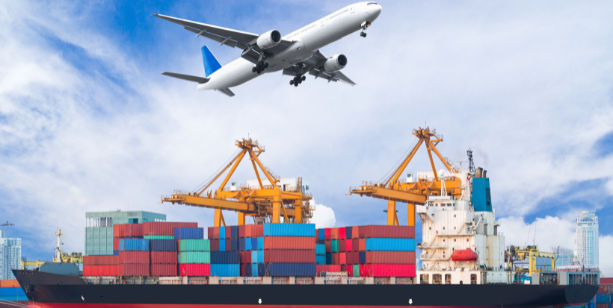Logistics is the process of managing inventory, receiving inventory, vendor management, warehousing and shipping. All of these functions play a significant role in project success. Neglecting any one will lead to headaches and delays. A poorly managed logistics department can even be the cause of project failure. Think about it: how many times have you received a package only to find out later that it was returned or missing something? The ease of ordering online has made it easier than ever to shop for replacement products but also left companies vulnerable if they do not manage their inventory properly. The effects are obvious – even small fluctuations in an organization’s inventory cost can quickly add up over time. This article will outline the different functions of logistics, how they work and why you should have one within your organization if you want to succeed with your projects.

What is contract logistics?
Contract logistics refers to a long-term collaboration including a wide range of services going from conveyance of products or spare parts to final end customer delivery.
For several businesses, logistics operations is one of the most essential aspects. This function could span from sourcing raw materials from various vendors to distribution of finished goods to the end customer. While some businesses are comfortable handling the logistics process in-house, and some believe in outsourcing it to contract logistics companies.
The first thing to understand is the difference between shipping and receiving. If you are working with a shipping company, they are responsible for receiving inventory from the supplier and managing the logistics to get it to the customer. The customer is responsible for receiving the product once it has been shipped. Shipping happens between the supplier and the customer before the product is even received. This is why shipping is said to be “last mile” of the supply chain. When a supplier ships a product, the logistics department is responsible for managing the receipt, the inventory, and the movement of the product from the shipping dock to the receiving dock.
Inventory management
The first and most important function of logistics is inventory management. If products are not managed properly, they will be at risk of being lost or damaged. When a customer places an order, the manufacturer is responsible for accounting for the number of units they will receive. This is easy if the orders are small but when the order size grows big, inventory management gets complicated and management becomes crucial. The number one reason for project failure is poor inventory management. It is one of the easy ways to blow budget and cause huge delays and headaches. When you are managing inventory, you must keep three things in mind:
- How much inventory do you have?
- Where is this inventory?
- What is the condition of this inventory?
Receiving and shipping
Once the product has been received, the next step is to get it to the customer. The transportation method will vary based on the customer’s location. In the United States, trucks are the most common means of transportation. In many other countries, ships are the most common means of moving cargo. The next step is to get the product from the transportation mode to the customer’s dock. The method used will vary depending on the type of customer and their location.
Vendor management
The final function of logistics is to manage the vendors. The goal of vendor management is to create a relationship with vendors that will last throughout the life of the project. This can include selecting the right vendors for the job, providing regular feedback and using suppliers who have proven themselves to be reliable. If you have a bad relationship with your vendors, it will be very difficult to get them to provide their services. It is essential to build strong relationships with your vendors early on in the project to help them see the project as a customer and thus be more eager to support it.
The 4 key factors of Project Success
Every project will experience some degree of delay. The main factor that determines how much delay you experience is your ability to manage the four functions of logistics. If you are able to minimize the amount of time spent waiting for inventory, receiving, shipping and managing vendors, you will be more likely to successfully complete your project.
The four functions of logistics are: Inventory management, receiving and shipping, vendor management and technology used to improve your supply chain. It is important to have a clear understanding of the processes each function plays in order to be more successful.
Using Technology to Improve Your Supply Chain
Technology is a valuable asset in improving your supply chain. You can use technology to help manage Inventory, process orders, track shipments and communicate with customers. When looking for technology, ask yourself this question:
- How will it help me manage my inventory?
- How will it help me track shipments?
- How will it help me manage my vendors?
Bottom line
Project success is strongly influenced by the four functions of logistics. Successful projects are able to minimize the amount of time spent waiting for inventory, receiving, shipping and managing vendors. If you want to be successful with your projects, you must have a clear understanding of the four functions of logistics and how they work.
ProConnect Integrated Logistics – Your 3PL Partner
Wide reach, a vast network of agents, and years of industry experience – leave your shipping worries to ProConnect Integrated Logistics, a trusted freight forwarder in the region.
Be it large volumes of cargo, or just a few kilos; be it air, sea or road freight – businesses across the world have entrusted their freight shipping to us. Our expertise over the years has helped many businesses grow across boundaries. In addition to shipping, we also undertake customs clearance, import and export trade help that you may have along with offering you value-added services.
If you are looking for a partner to take care of all your logistics hassles, talk to us





 APP DOWNLOAD
APP DOWNLOAD